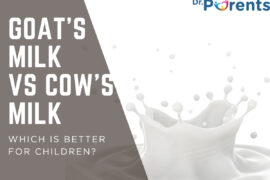The first time you hug your child is something you will never forget. Immensely satisfying is the sensation of holding them in your arms and feeling the warmth of their body. There’s nothing like it anywhere else! But did you know that there are scientific benefits to feeling warm and fuzzy in addition to feeling warm and fuzzy? Yes, it is correct.
Those warm and cosy sentiments, it turns out, are associated with good physiological and psychological changes in our bodies. How a simple hug can have a significant impact on your child? It is particularly crucial for the emotional, cognitive, and physical development of your child. Let’s take a look at five scientific reasons why you should hug your child regularly.
How a Simple Hug Can Have a Significant Impact on Your Child

1. HUGGING MAKES KIDS SMARTER
As children’s brains grow and develop, they require a great deal of sensory stimulation. Kids in orphanages, where they were only sometimes held, were found to have substantial cognitive abnormalities in studies conducted on them. However, when they were held for only 20 minutes per day for a total of 10 weeks, they performed significantly better on brain development tests.
A hug or skin-to-skin contact is essential for the development of newborn babies because they learn to navigate the world through touch when they are firstborn. Touch is the first of our five senses to develop, and therefore a nurturing touch gives the stimulus young brains require for optimal growth and development in their early years. Physical affection, both receiving and providing, will continue to be beneficial to your child as he or she grows. According to research, children who receive a greater number of hugs have more developed brains.

2. HUGGING HELPS KEEP KIDS FIT AND HEALTHY
Children require a dietary intake that is higher than adequate nutrients to thrive. When children are deprived of physical contact, their bodies are unable to reach growth milestones. Failure-to-flourish is a condition that occurs when a person fails to thrive. Children, on the other hand, can move from being unwell to being healthy very fast if they receive nurturing embraces.
Hugging can cause the release of oxytocin, a hormone that is related to feelings of trust, safety, and affection. When this hormone is released into the body, it also encourages the production of specific growth hormones. Even though experts continue to investigate the complex effects of oxytocin on the body, it becomes evident that the release of this hormone in our brains from a young age benefits the development of our physical abilities.

3. HUGGING CAN STOP TANTRUMS
Hugs are beneficial to a child’s emotional well-being. When a child is throwing a tantrum, nothing calms him down faster than a big bear hug from their parent. Many parents are concerned that hugging a tantrum-throwing child is a form of attention-seeking behaviour that reinforces undesirable conduct. However, this is not the case. Hugging a child is not the same as giving in (which does encourage bad behaviour).
Children, like adults, sometimes have emotional outbursts that are out of control. There is a distinction in that youngsters have not yet learnt how to control their emotions. In order for your child to reach this stage in development, their emotions will be like a runaway train while they are still in the womb.
Hugging your child during these times of severe emotional outbursts will assist to calm them down, showing them that you are there to support them during difficult times, and prevent them from experiencing an emotional crash.

4. HUGGING IMPROVES THE RESISTANCE OF CHILDREN
An increase in the release of adrenaline and cortisol into the body and brain occurs during times of hardship or stress. The fact that children have not yet learned how to manage their emotions means that stress can persist in the bodies of children until it reaches harmful levels. When this occurs, these stress hormones have the potential to negatively damage a child’s health on both a mental and physical level.
Excessive stress hormone exposure during adolescence can have detrimental implications in adulthood, including an increase in the chance of physical illness, as well as depression and other unfavourable conditions.
Hugs cause the production of oxytocin, which lowers the levels of stress hormones in the body, acting as a buffer against these detrimental effects and assisting youngsters in the development of resilience.

5. HUGGING HELPS YOU BOND WITH YOUR CHILD
Additionally, hugging your child strengthens the link between you and your child. Hugs increase trust, reduce fear, and help to build stronger connections and these advantages are shared by both parties. Physical affection is beneficial for both you and your child. A special link is formed between you and your child from the very first moment you hold them, and this bond must be nourished throughout their development. Your relationship with your child will deepen as he or she grows.
It shouldn’t be necessary to point out that the positive outcomes listed above are all the result of receiving the desired hug. We also want to underline the value of bodily autonomy, which goes without saying. Another important lesson is to teach children how to properly refuse hugs and deal with the potentially embarrassing fallout that may result.
So, the next time you embrace your child, remember that you’re also doing wonderful things for their physical and mental health at the same time.









